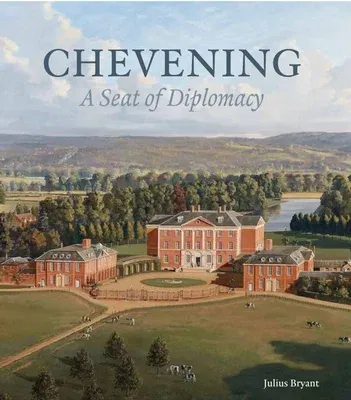Chevening stands in a magnificent park below the wooded escarpment of
the North Downs in Kent. It has a history dating back around 800 years,
but the house we see today is almost entirely the creation of seven
generations of the Stanhope family, building on the original Inigo Jones
house of 1630. For 250 years the Stanhopes served their country as
soldiers and statesmen and at Chevening as patrons of architecture and
art. This new guide highlights the contributions of the Earls and
Countesses Stanhope to the building, furniture, pictures, gardens and
landscape of Chevening. It also gives a short account of the family in
the wider world in order to set their creations in context. The
decoration and architectural features of each of the rooms - from the
Entrance Hall with its spectacular swirling staircase of c. 1721 to the
sumptuous Tapestry Room with its rare Berlin tapestries woven by
Huguenot craftsmen in 1708 - are described and illustrated, and
significant and unusual works of art highlighted, such as important
portraits by Allan Ramsay, Thomas Gainsborough, and Sir Thomas Lawrence.
The Estate consists of some 3,000 acres, and the gardens include a lake,
maze, parterre and a double hexagonal walled kitchen garden. The history
of the garden is explored, from the extensive landscaping in the formal
style by the 1st and 2nd Earls in the early 18th century, to the
naturalistic style created in 1775-78 - much of the character of which
survives today - to the re-formalizing in the 19th century, with the
creation of the 'Italian' gardens, a maze and hedged allées. The
wonderful restoration of recent decades and the replanting to the
designs of Elizabeth Banks is celebrated with new photography. Published
to coincide with the 50th anniversary of the Chevening Act coming into
eff ect with the death of the last Earl Stanhop and the 300th
anniversary of his family's acquisition of Chevening Estate.

